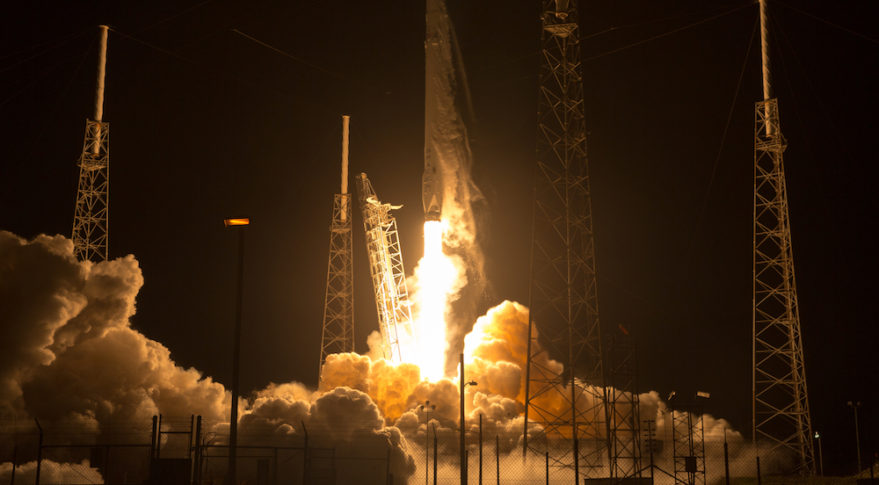Republican Platform Endorses Commercial Space Partnerships

WASHINGTON — The new platform of the Republican Party includes language supporting the use of public-private partnerships to develop space capabilities, an approach that has been used by administrations of both major political parties.
The platform, formally approved by delegates at the Republican party convention July 18 in Cleveland, also features language supporting "unfettered access" to space and increasing the number of scientific missions.
The 54-page document includes two paragraphs about space in a section about technology policy nearly one page long. One paragraph focuses on the use of public-private partnerships.
"The public-private partnerships between NASA, the Department of Defense, and commercial companies have given us technological progress that has reduced the cost of accessing space and extended America's space leadership in the commercial, civil, and national security spheres," it states. "The entrepreneurship and innovation culture of the free market is revitalizing the nation's space capabilities, saving taxpayer money, and advancing technology critical to maintain America's edge in space and in other fields."
The platform doesn't give specific examples of those partnerships, but NASA has made significant use of them under both the current and previous presidential administrations. NASA started the Commercial Orbital Transportation Services (COTS) program in 2005 to develop spacecraft to transport cargo to the International Space Station. COTS was run as a public-private partnership through the use of funded Space Act Agreements, with companies expected to supplement the NASA funds with their own to support vehicle development.
COTS led to the development of SpaceX’s Falcon 9 rocket and Dragon spacecraft, and Orbital Sciences Corp.'s Antares rocket and Cygnus spacecraft. Both companies won Commercial Resupply Services contracts from NASA to transport cargo to and from the ISS in December 2008, a month before the end of the presidency of George W. Bush.
Under the Obama Administration, NASA adopted a similar approach for commercial crew systems, awarding a series of funded Space Act Agreements to several companies to support vehicle and other technology capabilities. NASA ultimately gave contracts in September 2014 to Boeing and SpaceX for their CST-100 Starliner and Crew Dragon spacecraft.
Breaking space news, the latest updates on rocket launches, skywatching events and more!
The following paragraph of the platform offered more general policy guidance for civil and national security space. "To protect our national security interests and foster innovation and competitiveness, we must sustain our preeminence in space by launching more scientific missions, guaranteeing unfettered access, and ensuring that our space-related industries remain a source of scientific leadership and education," it states.
The platform doesn't elaborate on those positions, including what kinds of scientific missions should be launched or how it defines "unfettered access" to space. That passage is similar to language in the party's 2012 platform, which stated, "To preserve our national security interests and foster innovation and competitiveness, we must sustain our preeminence in space, launching more science missions, guaranteeing unfettered access, and maintaining a source of high-value American jobs."
The platform did not include any criticism of the Obama Administration's space policy, such as the cancellation of the Constellation program in 2010. Eileen Collins, the former astronaut who will speak briefly at the convention July 20, did criticize that decision in congressional testimony earlier this year. The document also does not go into details on military space policy, beyond a call to "fund, develop, and deploy a multi-layered missile defense system."
A draft version of the Democratic Party platform, dated July 1, makes no mention of space, but does state that the party supports "ambitious public and private investments in science, technology, and research." The final version of the platform will be approved by delegates at the party’s convention the week of July 25 in Philadelphia.
Originally published on Space News.

Jeff Foust is a Senior Staff Writer at SpaceNews, a space industry news magazine and website, where he writes about space policy, commercial spaceflight and other aerospace industry topics. Jeff has a Ph.D. in planetary sciences from the Massachusetts Institute of Technology and earned a bachelor's degree in geophysics and planetary science from the California Institute of Technology. You can see Jeff's latest projects by following him on Twitter.

